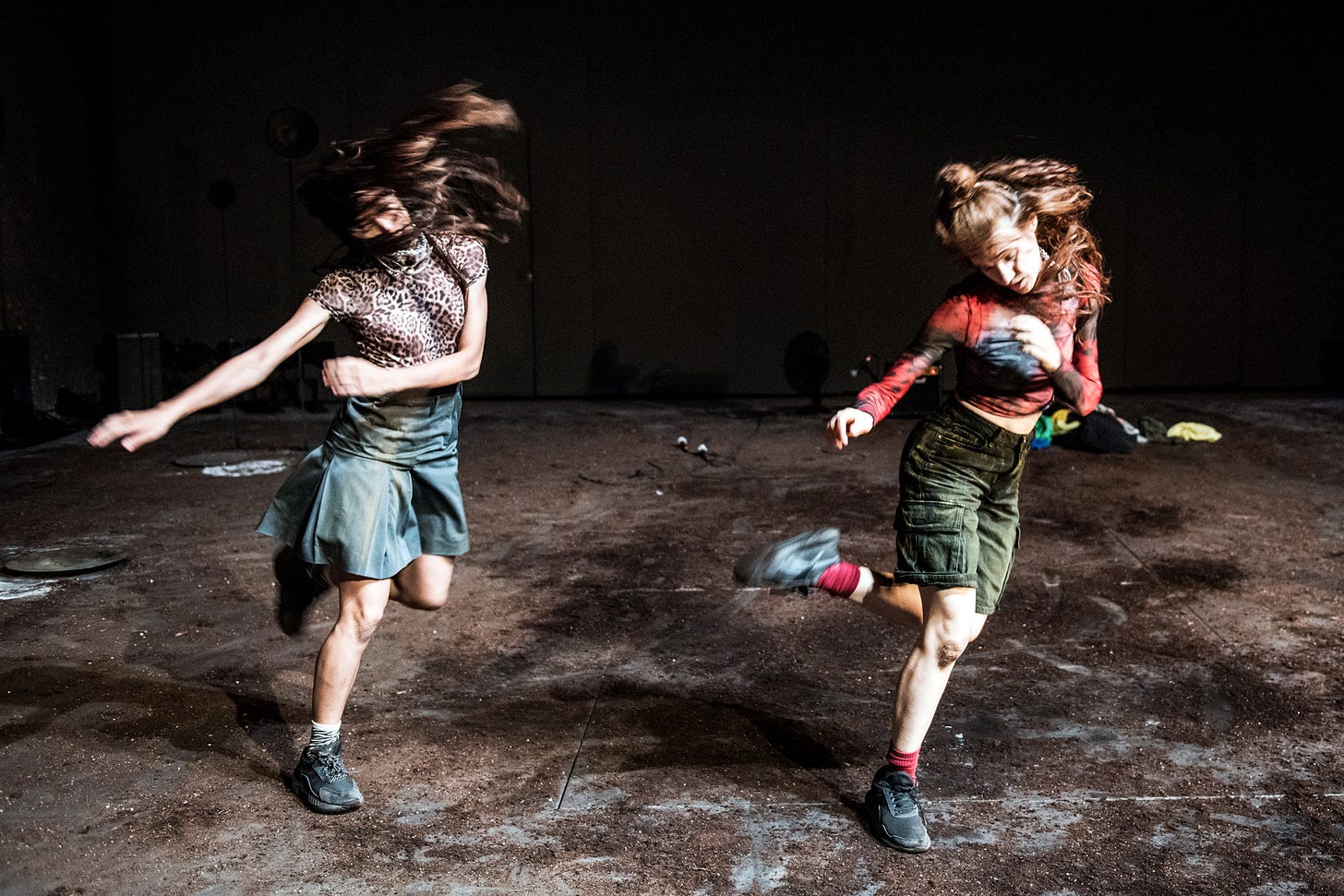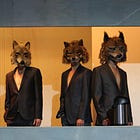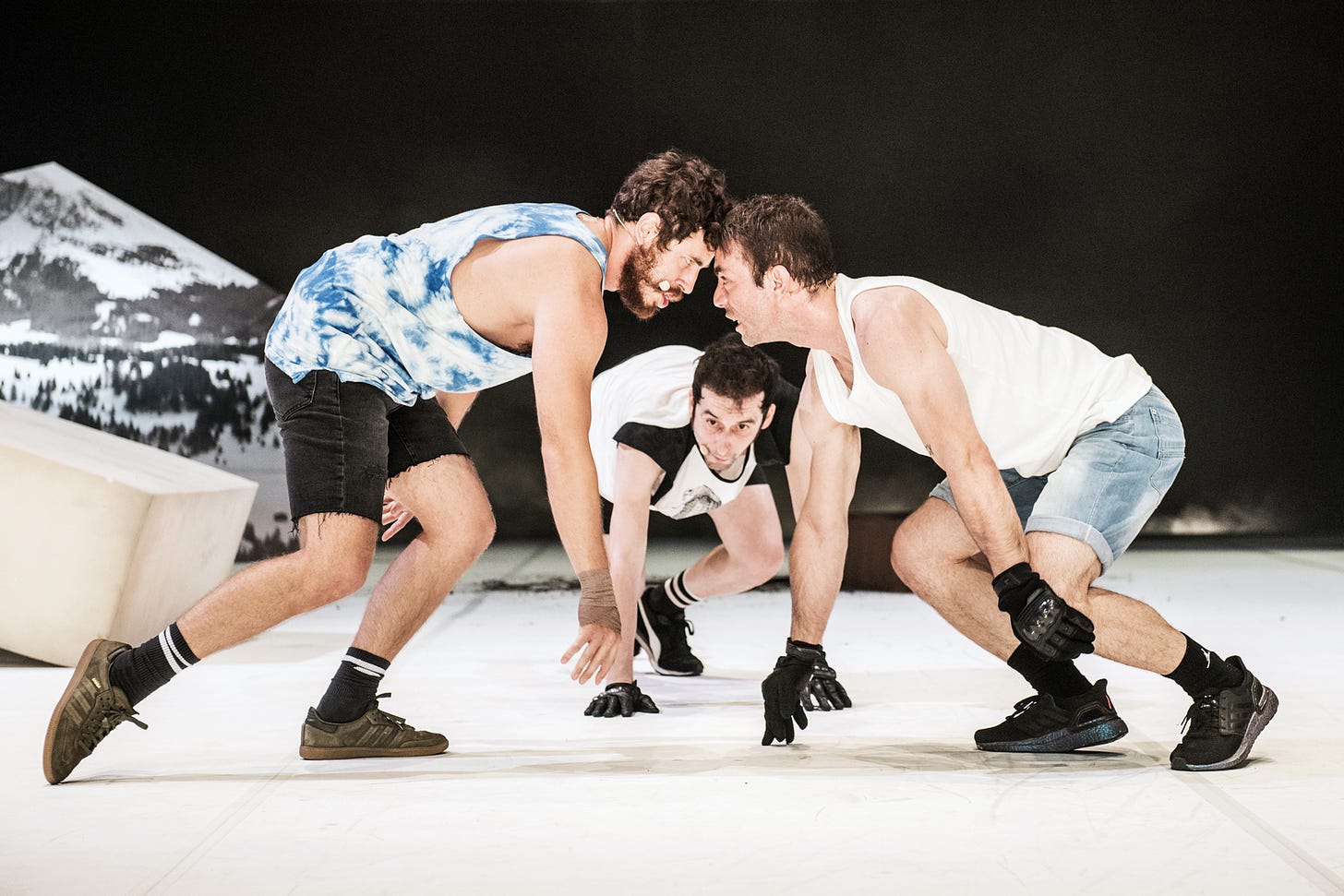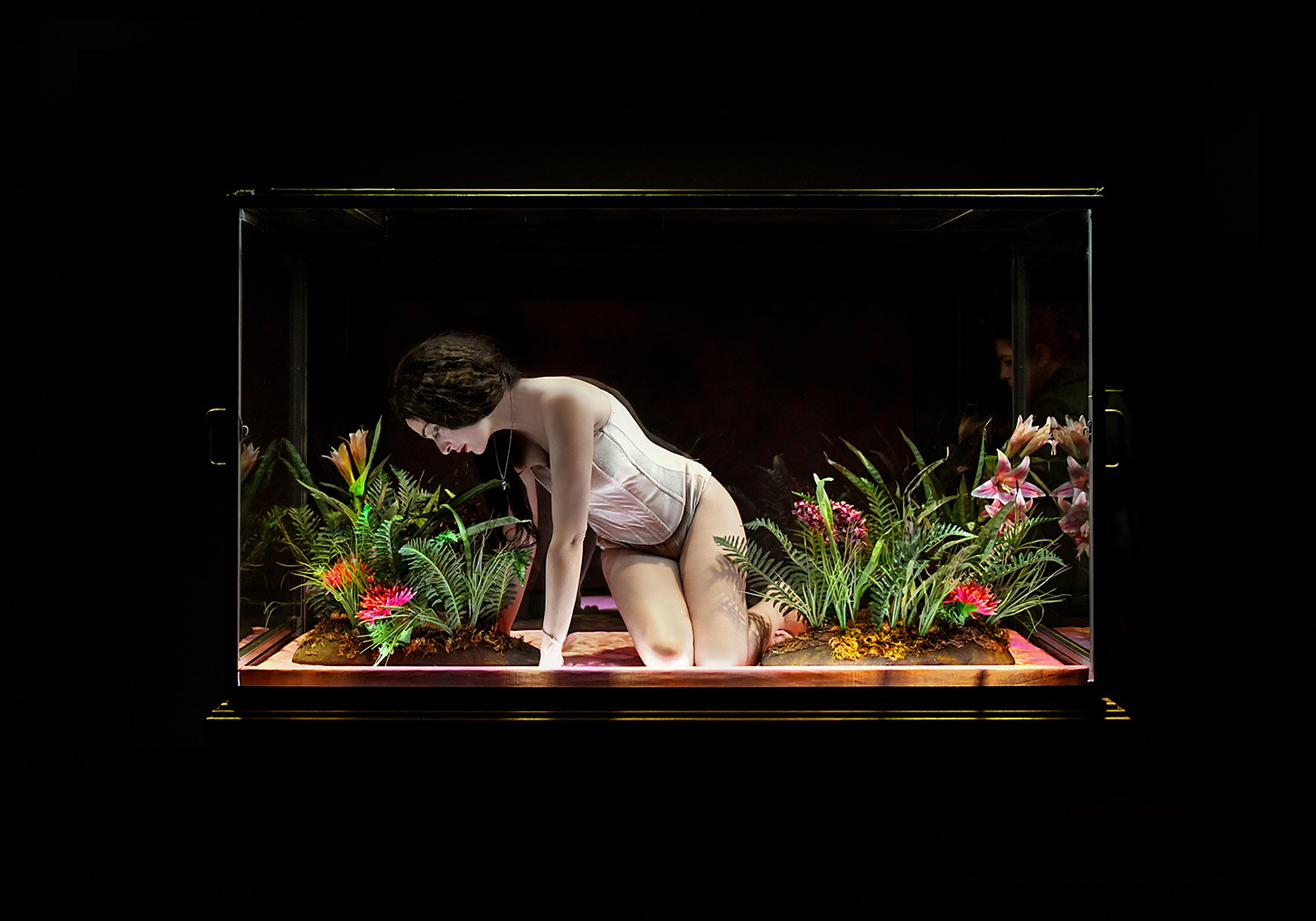Fruit of the vine: The Grape Agora of Performance
On a showcase of new Greek work presented as part of this year's Athens-Epidaurus Festival.
It’s been a year since I started Café Europa. One whole year! During that time, I’ve covered work from Germany, Slovenia, Belgium, Portugal, Poland, Ukraine, The Netherlands, Denmark, France, Kosovo, Bosnia, Switzerland, Latvia, Bulgaria, Serbia, Italy and the Faroe Islands. Past interviewees have included Milo Rau, Rikki Henry, Fix+Foxy’s Tue Biering, former Complicite executive director Amber Massie Blomfield and Bert and Nasi, though the most enjoyable piece to research has to be this deep dive on the making of the collision of cultures that was the German/Estonian/UK co-production Three Kingdoms.
There are now 1062 subscribers, which is lovely. To mark this newsletter's first birthday I'm offering a 20% discount to anyone considering becoming a paid supporter. This newsletter is a delight to write but it does take a lot of time. I have some (hopefully) interesting things in the pipeline, but first here are some words on my visit to Athens earlier this summer.
Music drifts across the courtyard at Peiraios 260, a former furniture factory turned cultural hub on the fringes of Athens. Boasting four performance halls, an open air stage and a bar serving potent margaritas, the venue is one of the main performance spaces for the Athens-Epidaurus Festival. It’s the bulk of the programme of this year’s Grape Agora, the showcase for new Greek work which takes place within the festival.
The showcase, which took place between 21st-25th July, was only its second edition. Here’s my interview with artistic director Katerina Evangelatos for The Stage about why she felt it necessary to set up a showcase focussing on Greek work. Greece, she explained, unlike many European countries, does not have a repertory system. While a lot of work gets made – there were over 1000 premieres last year – most pieces have a relatively short life. This coupled with the fact that Greek is not a widely spoken language means that only a handful of Greek artists, most working in dance or largely physical performance, have made a name for themselves internationally. She set up Grape to address this, though the nature of Greece’s theatre system meant that many of the pieces were premiering during the showcase.
Personally, I was most taken with the showcase’s two enjoyably noisy dance pieces, both the work of young female choreographers. Borborygmy is – delightfully - the Greek word for the rumbling sound our stomachs make when they’re empty. A new dance piece from up-and-coming choreographer Chara Kotsali, it features two dancers - Kotsali and Christina Skoutela - on a stage covered in earth, their knees scuffed and mucky like school kids. The ground is strewn with turntables and cymbals and there is a small group of speakers on one side of the stage, like a cluster of spindly mushrooms. In one corner, there is a herd of toy sheep (or possibly cows, they were small).
The performers sit on the ground, one idly scrolling on her phone. We hear tinny snippets of sound. A snatch of a kid singing ‘Let It Go’, Julie Andrews chirruping about her favourite things. Then they unzip their jackets and begin to peel off T-shirt after T-shirt revealing various slogans. The phrase ‘Sweaty Dance / Til you burn’ stands out.
When they finally start to dance, their movements knit elements of folk dance with something rough and punkish. There’s a playground energy to their dancing. They skip and stomp and link arms. They fling their hair about. They slap the fleshy parts of their legs.
Then the beat kicks in, a constant thump-thump-thump. The performers spin around, frequently moving together, sometimes with linked hands. They take a microphone and scrape it across the floor. They bash it against the cymbals. They jump on the cymbals for good measure. Text flashes up on the screen on the back wall, in a mixture of Greek and English. One line reads: “It’s a girl/with bruised knees.” The question “what is this shit?” recurs. At least one line is a Radiohead reference (to this song, I think).
Ending with “one minute’s noise for one century of silence”, the piece was cacophonous and unpolished with a celebratory rocking-out-in-your-bedroom vibe coupled with a sense of defiance.
The more internationally established Katerina Andreou’s first group piece Bless This Mess (which premiered earlier in the year in Belgium and will play the Festival d’Automne in October) is also joyously noisy. It starts from a place of intensity. There’s no slow-build, no warm up. It just goes for it, with the four performers – Andreou plus three other dancers - moving to the same looping piece of music. Their movements are sometimes night-clubby, sometimes classical (sorry, I’m not a proper dance critic) and the piece, as a whole, has a thrillingly relentless quality. Eventually, the music stops looping but the piece doesn’t let up. There were points where the dancers donned long wigs, with their hair falling over their faces (very Miet Warlop), others where they wore clown masks. There was room for humour in the piece, amid the seemingly chaotic onslaught; however, given that this was Andreou’s first group piece, the sense that the performers were on the same wavelength, responding to the music and each other, felt like the key gesture here.
Dog days and word-play
The Dogs, the new show by the director Anestis Azas, whose 2021 work The Republic of Baklava has toured internationally, is inspired by the true story of a dog who was killed in a tourist town, and not just killed, but tortured and violated in the grimmest way imaginable. Azas uses this story as the basis for an exploration of smalltown corruption and human/animal relations. Somewhat ingeniously he tells the story from the point of view of the dogs, framing it as kind of neo-noir in which a pack of dog detectives attempt to bring their friend’s killer to justice. This entails a lot of scampering around the stage on all-fours, clambering over crashmats and occasionally lifting their leg against pieces of the set. It’s – inevitably – a very physical performance with token Brit performer Gary Salomon providing musical accompaniment to this canine escapade, giving it a gig-theatre feel. When the cast play humans they don slightly uncanny masks, which they do for a final talk show sequence. There’s a lot of pleasure to be derived from watching the actors play at being pooches, but this piece had a structural bagginess that ultimately worked against its playfulness and empathy.
Station Athens Group has been working closely with refugees and immigrants to tell their stories since 2009. In Connection Error, director Yolanda Markopoulou worked with five men, all previous collaborators, for a devised piece about the experience of living in a country that is not your home, with all the attendant bureaucracy, language barriers and citizenship tests, along with, in something of a departure for the company members, reflections on family, dating and relationships.
One man talks about the familial pressure to marry his partner and the mother of his children, another about the different societal pressures he faces in being single. Underneath all this is the perennial question of what it means to make a life and a home somewhere new.
This more personal elements make for a relatively emotionally exposing piece for the performers (which apparently, and understandably, made for a more challenging devising process). Perhaps as a way around this, the production sees the men posing questions about love and other matters to a disembodied AI voice. The set, which consists of milk crates that form a kind of cityscape but also a projection screen onto which family photos can be displayed, is nicely versatile, but it’s the warmth of the performance and the rapport between the cast that leaves the biggest impression, the way these men open up to each other - and to us. This vulnerability, which feels careful and consensual, is the main strength in a piece that feels in need of further shaping though its compassion is evident.
Etymologies, a new piece by Efthimis Filippou – a regular collaborator with Yorgos Lanthimos and the screenwriter of The Lobster - and the actor Angeliki Papoulia takes the form of a mock-lecture by a mock-organisation, concerned with cataloguing etymologies of Greek words. It takes place in Athens’ Old Parliament Building, adding to the sense of authenticity. There is some amusingly awkward preamble as the speakers take their seats and make their introductions, including a plea to help keep their organisation solvent. But there’s also a sense of something being off, with a lengthy ‘in memoriam’ section to all their fellow etymologists who have met sticky ends over the past year.
We are then presented with several case studies, taking a different word and breaking down its origins. These get increasingly daft and bizarre over the course of the show. Some are fable-like, others macabre. They are all accompanied by slides of photos, archive documents and other primary sources. Control of the laser pointer becomes a running battle between the speakers. There’s a hilarious section in which one of the panellists reads the world’s longest - and pettiest - curse. There’s also a lengthy music interlude in which a middle-aged crooner sings folk songs while giving the glad-eye to the female members of the audience. This, like the ‘in memoriam’ section, is extended way beyond what seems reasonable. It’s essentially a one-joke show, though an often very funny joke, but without a grounding in Greek, I suspect a lot of the nuance in the humour passed me by.
Argyro Chioti’s Point of Refreshment takes place in a halfway space between one realm and the next. A refreshment kiosk sits in a sandy expanse. A group of people sit on chairs wait their turn to be summoned. Only once they have drunk from the kiosk’s watercooler are they able to pass through to whatever lies on the other side. Instead of coins for the ferryman, a personal token is given to the kiosk’s custodian – a pair of glasses, a bell, in one case, a kiss – before they can begin their crossing. A water fountain in the middle of the floor turns on intermittently wetting the hems of their skirts (a witty stand-in for the Styx?) Some people’s passage is more laborious than others. They are obliged to weep into plastic tubes, their tears collected and assessed. Or they are simply made to wait and wait and wait. (The rules of who gets through and who gets tested remain foggy).
The kiosk’s other guardian is a woman who converses in a squeaky non-language, making sounds that approximate speech. She is mischievous and enjoys setting fire to things. In a nice touch, several people sitting among the audience will rise from their seats during the show to cross the floor, sipping from the water cooler and making their exit.
Chioti’s work often melds performance and music and that’s the case here. There are operatic passages, beautifully sung. On both a tonal and aesthetic level this made me think of Philippe Quesne (particularly Les Jardin des Delices which I saw in Avignon), but while I could appreciate the considerable skill on display, the piece’s incessant quirkiness just didn’t click with me.
On an aesthetic level, I was really taken by Amalia Melancholia, Queen of the Palm Trees, Zoe Chatziantoniou’s show about Amalia, Queen of Greece, and the scrutiny she was subjected to over of her inability to produce an heir led.
The show opens with Emily Koliandri lying inside a glass vitrine, looking like a waxwork exhibit, while an older woman perches on a pedestal beside her. The floor is darkly carpeted, the space inky except for a window thick with greenery, a nod to Athens’ National Gardens, with its famous palm trees, which Amalia commissioned. The show draws on her letters and other documentary material, including correspondence from her doctors, to tell the story of her life and the pressure she faced to reproduce.
Chatziantoniou’s staging is intriguingly sinister. The lighting is glitchy and flickering and there are frequent plunges into blackness. When the lights snap back on, Amalia’s costume has become more elaborate. She’s gained another layer of petticoat or a fuller skirt. At one point Amalia is suspended by the ankles from the ceiling, her hair cascading over her face, making her look like a human lampshade. Later, the older woman crawls under her skirts and rummages around. She is subjected to examination throughout her life and even in death via autopsy, her body treated as a puzzle for medical men to solve. (This focus on the constant scrutiny to which she was subjected reminded me of Marie Kreutzer’s film Corsage at times). Childless women have often been seen as rogue or wrong, objects of suspicion for not fulfilling their societal role – it’s happening to Kamala Harris now – and the show taps into that, and yet it also resists the standard biographical model of storytelling in a way that’s both intriguing and frustrating. It offers a meditation on creation and the female body as an object, but rejects dramatic momentum in way that means, that while the material is fascinating, it holds the audience at arm’s length.
For me the strongest theatre piece was Mario Banushi’s Taverna Miresia - Mario, Bella, Anastasia - which I have already discussed. While a few pieces felt like they could benefit from more development, from more time in general (a symptom of the system perhaps, and something which which UK readers will be familair), I was impressed by the variety and range of work on display, not to mention the commitment to sweaty dance.
This week in European theatre
A round-up of festivals, premieres and other upcoming events over the next seven days
Unlimited – The annual multi-artform festival of new work by deaf and disabled artists returns to the Southbank Centre in London with a programme including FlawBored’s recent fringe hit It’s a Motherf**king Pleasure, Jo Bannon’s Sleight of Hand and Touretteshero’s latest show Burnt Out in Biscuit Land as well as visual arts, music, poetry and a club night for the neurodivergent. The festival runs from 4th=8th September
Het Theater Festival – The celebration of Flemish theatre features a cracking line up including Electra Unbound by NTGent, Carolina Bianchi’s The Bride and The Goodnight Cinderella, Flemish theatre collective Die Hoe’s Opening Night, based on the John Cassavetes film starring the late Gena Rowlands, and Thanks for Being Here, Ontroerend Goed’s follow-up to Funeral. The festival takes place in Antwerp between 5th-15th September.
Nederlands Theater Festival/Amsterdam Fringe Festival – The Nederlands Theater Festival brings together the highlights of the past season in the Netherlands and Flanders, which this year includes Milo Rau’s Antigone in the Amazon and De Noe’s production of Opening Night (again).The festival runs from 5th-15th September. The Amsterdam Fringe, with its programme of performance and dance from emerging artists and companies, runs concurrently with it.
Malta Festival – The Polish multidisciplinary festival – it takes its name from nearby Lake Malta – has been reinvigorated this year with an international line-up including Lithuanian climate change opera Sun and Sea and Topsy Turvey by Tim Robbins and the Actors Gang as well as a programme of Polish work including Krzysztof Warlikowski’s Elizabeth Costello/JM Coetzee. The festival takes place in venues around Poznan between 7th -15th September.
Thanks for reading! If you have any feedback, tips, or thoughts about this newsletter, you can reach me on natasha.tripney@gmail.com








